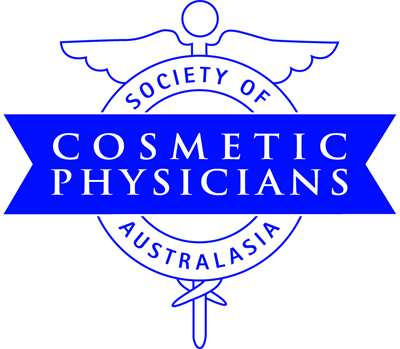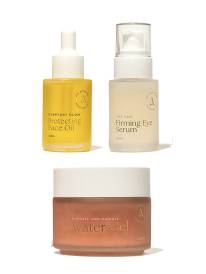CPSA applauds Choice IPL and Laser Regulation Investigation

CPSA applauds Choice IPL and Laser Regulation Investigation
The Cosmetic Physicians Society of Australasia (CPSA) applauds a recent investigation by consumer magazine, CHOICE, which recommends increased regulation on the use of Intense Pulsed Light (IPL) and lasers for the removal of unwanted body hair.
The CPSA has been working for a number of years to encourage regulators to introduce national regulations on the use of Intense Pulsed Light (IPL) and lasers for cosmetic treatments. The CPSA is disappointed with the lack of progress towards a national framework, which has stalled as the regulator, the Australian Radiation Protection and Nuclear Safety Agency (ARPANSA), claims that there is not enough published evidence to support the introduction of mandatory training or licensing.
At present, the use of IPL and laser devices remains unregulated in Australia's two most populous states, NSW and Victoria. Both state governments maintain they are awaiting the outcome of the national process, which has been on and off since 2001, before they proceed with new rules.
The President of the CPSA, Dr Gabrielle Caswell, said she was pleased to see that CHOICE had acknowledged this issue and hopes it will put pressure on regulators to develop a national regulation that will improve patient safety.
< Br> 'Anyone can now buy an IPL or laser device and set themselves up without requiring training or insurance – this situation really puts patients at risk," Dr Caswell said.
'Non-medical personnel tend to consider sun damage as solely a cosmetic issue, however it's important to recognise that within cosmetic concerns there may be unrecognised clinical concerns, such as pre- or skin cancers which would not be picked up by the non-medical personnel.
'These treatments have a real potential to be harmful if not administered correctly – and there's no requirement for non-medical personnel to receive informed consent, so people often aren't aware of the risks.
'These risks include inappropriate treatment of pre-skin cancers, and some forms of skin cancers, and burns which can leave scarring.
'I think it is surprising that ARPANSA claims it can't find enough published evidence to support regulation, but we are in the process of collecting documents to provide the agency with the published clinical evidence that it says is necessary for a Regulatory Impact Statement to be developed."
Dr Caswell says doctors from the CPSA have seen a number of patients who have been harmed by inappropriate treatment with IPL or class-4 lasers used by untrained personnel.
'In some cases, inappropriate treatments may result in scarring or other symptoms such as pigment change which may last weeks, months, or may even be permanent," she said.
'It can be particularly distressing for people who are already conscious of their appearance and burns caused by laser or IPL can be extremely painful.
'Even more seriously, IPL/laser treatments can change the appearance of melanomas or other skin cancers and delay diagnosis, risking people's lives. In addition, untrained personnel often do not carry professional indemnity insurance, which gives patients very little protection in the event of adverse outcomes."
The CPSA recommends that consumers seek advice from qualified medical personnel before undergoing IPL or class- 4 laser treatments. The CPSA's members are experienced medical practitioners in the field of cosmetic medicine and can offer advice to patients on the suitability of the various methods. All medical personnel are required to carry professional indemnity insurance, are registered by professional boards and have enforceable codes of conduct.
The CPSA is a professional organisation formed in 1997 to represent qualified doctors who focus on providing cosmetic procedures. The CPSA now represents the largest group of doctors with a focus on cosmetic medicine in Australia. It's twin aims are: to raise standards in the provision of cosmetic medicine by providing members with relevant training and information;
to provide the public with up-to-date information about Cosmetic Medicine and help them locate qualified doctors whose focus is on providing cosmetic procedures.
The CPSA has played a significant role in the development of standards to protect the public in recent years and actively works to highlight and eradicate bad practices.
MORE
- How to Conquer Bad Winter Health Habits
- Resident Evil: What Lies Outside'
- 1.5 million for 1.5 million Victorians...
- Be U Not a Bully Forum for Parents and Teens
- New Screening Test Recommended To Help Prevent...
- Vitamin D Mushrooms May Solve Health Dilemma
- Gemma Howorth World-First Solates Class Interview
- Federal Government Clarifies Carer Allowance...
- Fiona Clark Sleep Problems Linked to Bullying...
- Elective Surgery and Emergency Care on Increase
- Emotional Stress Proves to be a Pain in the Back
- CPSA applauds Choice IPL and Laser Regulation...
- Karen Kaye Complementary Medicines Are...
- Danielle Stowasser Pain Relief Interview
- Dr Weng Sam Type 2 Diabetes Medication Interview
- Blood Clots and Stroke Fourth Indicator
- An Unhealthy Mouth can lead to Heart Disease
- Sharing MS Diagnosis Key To Retaining Employment
- CanTeen Counselling Service
- Australia Leads The Way With HPV Vaccination Of...





